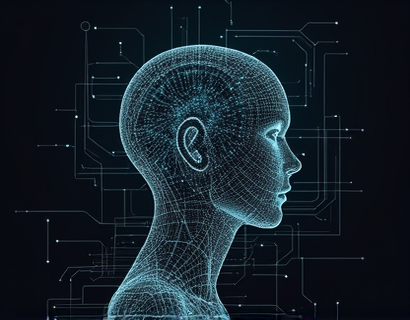AI-Powered Task Management: Elevating Personal and Professional Productivity with Intelligent Agents
In the fast-paced world of today, the demand for efficient task management solutions has never been higher. The integration of Artificial Intelligence (AI) into task management systems represents a significant leap forward, offering unprecedented levels of efficiency and productivity. AI-powered task management leverages intelligent agents to intelligently handle both personal and professional tasks, streamlining operations and enhancing overall efficiency. This technology is not just a tool but a transformative force that redefines how we approach task management, allowing individuals and businesses to focus on high-priority activities and maximize their potential.
The core idea behind AI-powered task management is to create intelligent agents that understand, predict, and automate tasks based on user preferences and work patterns. These agents are designed to learn from user behavior, adapt to new inputs, and perform tasks that traditionally required human intervention. By offloading routine and repetitive tasks to these intelligent agents, users can concentrate on strategic, creative, and high-value activities that drive growth and innovation.
Understanding AI-Powered Intelligent Agents
Intelligent agents in task management are sophisticated software entities that can perceive their environment through sensors (data inputs), act upon that environment through actuators (task execution), and use learning algorithms to improve their performance over time. These agents are powered by machine learning and natural language processing (NLP) technologies, enabling them to understand complex instructions, context, and nuances in human communication.
One of the key features of intelligent agents is their ability to prioritize tasks based on urgency, importance, and deadlines. They can analyze multiple factors, such as the user's historical behavior, current workload, and external factors like weather or traffic, to determine the optimal time to perform each task. This level of customization ensures that users are always working on the most critical tasks at the most appropriate times, reducing stress and increasing productivity.
Benefits for Personal Productivity
For individuals, AI-powered task management offers a range of benefits that can significantly enhance personal productivity. One of the most notable advantages is the reduction of cognitive load. By delegating task management to intelligent agents, users free up mental resources to focus on more important aspects of their lives. This is particularly beneficial for those juggling multiple responsibilities, such as work, family, and personal development.
Another significant benefit is the improvement in time management. Intelligent agents can create and adjust schedules dynamically, ensuring that users have enough time for both planned and unexpected tasks. They can also remind users of upcoming deadlines and suggest optimal times for task completion based on historical performance data. This proactive approach helps prevent last-minute rushes and reduces the likelihood of missed deadlines.
Moreover, AI-powered agents can integrate with various calendar applications, to-do list tools, and productivity apps, creating a seamless ecosystem that enhances overall organization. For example, an intelligent agent can automatically sync tasks from a personal calendar to a task management app, ensuring that nothing slips through the cracks. This integration also allows for better planning and coordination, especially for those with complex schedules.
Enhancing Professional Productivity
In a professional setting, the impact of AI-powered task management is even more profound. Businesses can leverage these intelligent agents to streamline operations, improve collaboration, and boost overall efficiency. One of the primary applications is in project management, where intelligent agents can oversee multiple tasks and subtasks, assign resources, and track progress in real-time. This level of oversight ensures that projects stay on track and meet their deadlines without the need for constant manual monitoring.
AI agents can also facilitate better communication and collaboration within teams. By analyzing communication patterns and identifying bottlenecks, these agents can suggest optimal meeting times, propose action items, and even draft meeting minutes. This not only saves time but also ensures that all team members are aligned and informed.
Another critical aspect is the automation of routine administrative tasks. Intelligent agents can handle tasks such as data entry, report generation, and email management, freeing up employees to focus on more strategic activities. This automation reduces the risk of human error and increases the speed of task completion, leading to higher productivity and better outcomes.
Case Studies and Real-World Applications
Several organizations have already embraced AI-powered task management and seen significant improvements in productivity. For instance, a mid-sized software development company implemented an AI-driven task management system to handle project workflows. The system automatically assigned tasks based on team members' availability and expertise, monitored progress, and provided real-time updates. As a result, the company reported a 30% reduction in project completion time and a 25% increase in team satisfaction.
A large retail chain utilized AI agents to manage inventory and customer service tasks. The agents analyzed sales data, customer feedback, and inventory levels to optimize stock levels and schedule staff accordingly. This led to a 20% reduction in overstock and understock issues, as well as a 15% improvement in customer satisfaction scores.
These case studies demonstrate the versatility and effectiveness of AI-powered task management across different industries and business sizes. The common thread is the ability of intelligent agents to adapt to specific needs, automate repetitive tasks, and provide actionable insights that drive decision-making.
Challenges and Considerations
While the benefits of AI-powered task management are clear, there are also challenges and considerations that users should be aware of. One of the primary concerns is the initial setup and integration with existing systems. Implementing an AI-driven task management solution requires careful planning to ensure compatibility with current tools and workflows. However, most providers offer comprehensive integration support to ease this transition.
Another consideration is data privacy and security. Intelligent agents require access to user data to function effectively, which raises concerns about data protection. Reputable providers implement robust security measures, such as encryption and compliance with data protection regulations, to safeguard user information. Users should thoroughly review the privacy policies and security protocols of any solution they consider.
Additionally, there is a learning curve associated with using AI-powered task management tools. Users need to familiarize themselves with the features and capabilities of the agents to fully leverage their potential. Most providers offer training resources and customer support to help users get started and overcome any initial hurdles.
Future Trends and Innovations
The field of AI-powered task management is rapidly evolving, with ongoing advancements in machine learning, natural language processing, and user interface design. One of the emerging trends is the integration of emotional intelligence into intelligent agents. By understanding and responding to users' emotional states, these agents can provide more empathetic and personalized assistance, further enhancing the user experience.
Another area of innovation is the development of multi-agent systems, where multiple intelligent agents work together to manage complex tasks and workflows. This approach allows for more sophisticated task decomposition and resource allocation, enabling users to tackle larger and more intricate projects with ease.
Furthermore, the rise of edge computing is set to enhance the performance and responsiveness of AI-powered task management solutions. By processing data closer to the source, these systems can reduce latency and improve real-time decision-making, making them even more effective in dynamic environments.
Conclusion
AI-powered task management represents a significant advancement in the way we handle personal and professional tasks. By leveraging intelligent agents, users can achieve higher levels of productivity, efficiency, and focus. These agents not only automate routine tasks but also provide valuable insights and support, enabling users to concentrate on high-impact activities. As the technology continues to evolve, the potential for even greater improvements in productivity and quality of life is immense. Embracing AI-powered task management is not just a choice but a strategic move towards a more organized, efficient, and successful future.











































